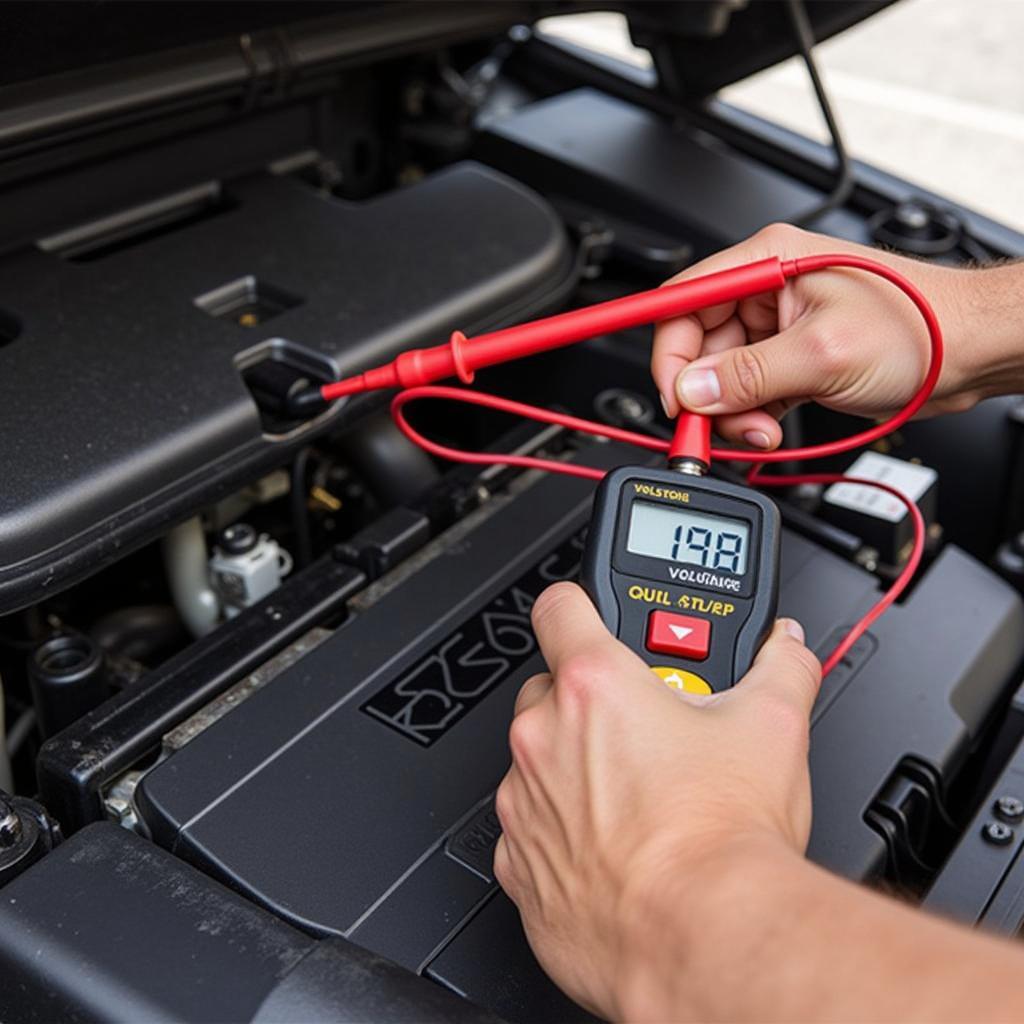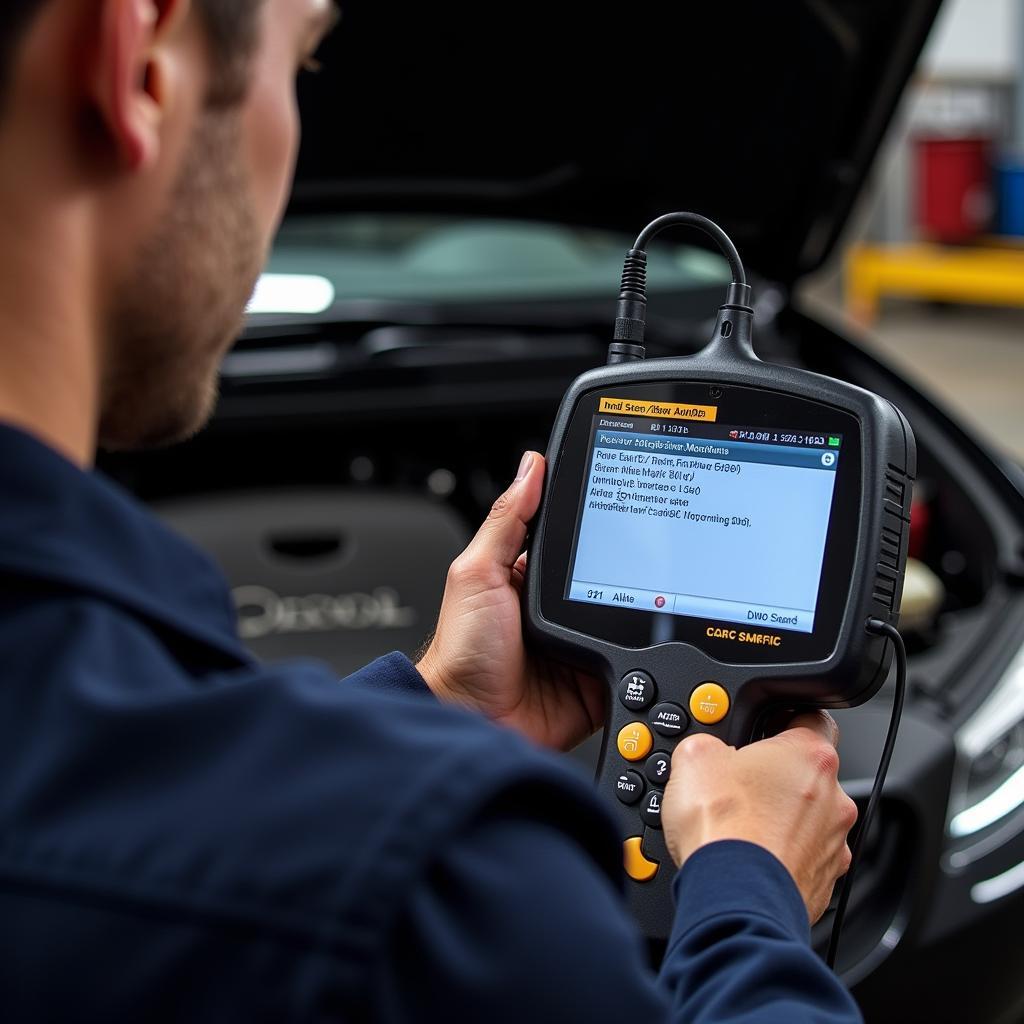Car Start Stop Problems can be incredibly frustrating, leaving you stranded and unsure of what to do. Whether your car won’t start at all, struggles to turn over, or the start-stop system is malfunctioning, understanding the potential causes and solutions is crucial. This guide provides a comprehensive overview of common car start stop problems, helping you diagnose and potentially fix the issue yourself or communicate effectively with a mechanic.
Common Causes of Car Start Stop Problems
Several factors can contribute to car start stop problems. From a dead battery to a faulty starter motor, pinpointing the culprit can be tricky. Here are some of the most common culprits:
- Weak or Dead Battery: This is often the most frequent cause. A battery that’s nearing the end of its lifespan might struggle to provide enough power to start the engine, especially in cold weather. If your car clicks when you turn the key, a dead battery is a likely suspect.
- Faulty Starter Motor: The starter motor is responsible for cranking the engine. If it’s failing, the engine won’t turn over. You might hear a grinding noise when you try to start the car.
- Ignition System Issues: Problems with the ignition switch, ignition coil, or spark plugs can prevent the engine from starting. Symptoms can include the engine cranking but not starting, or a misfire.
- Fuel System Problems: A clogged fuel filter, faulty fuel pump, or empty fuel tank (yes, it happens!) can also prevent the car from starting. If you smell gasoline, there might be a leak in the fuel system.
- Malfunctioning Start-Stop System: Modern vehicles often have automatic start-stop systems designed to save fuel. However, problems with this system can lead to the engine stalling unexpectedly or refusing to restart. This can sometimes be related to the battery’s state of charge or a faulty sensor. Similar to stop start cars problems, a faulty sensor can cause the system to malfunction.
Troubleshooting Car Start Stop Problems
Diagnosing car start stop problems can seem daunting, but with a systematic approach, you can often narrow down the possibilities.
- Check the Battery: Use a multimeter to test the battery voltage. A reading below 12.6 volts usually indicates a weak battery. Try jump-starting the car. If it starts, the battery likely needs replacing.
- Inspect the Starter Motor: Listen for unusual noises when trying to start the car. A grinding or clicking sound suggests a starter motor problem.
- Examine the Ignition System: Check for loose or damaged spark plug wires. If you suspect an ignition coil issue, a mechanic will need specialized tools for testing.
- Verify the Fuel System: Make sure there’s fuel in the tank! Check for fuel leaks and listen for the fuel pump when you turn the key to the “on” position.
- Diagnose the Start-Stop System: If you suspect the start-stop system is malfunctioning, check your car’s owner’s manual for specific troubleshooting steps or consult a mechanic. Modern cars can often automatically diagnose car problems with sensor technology.
 Testing Car Battery Voltage with Multimeter
Testing Car Battery Voltage with Multimeter
When to Seek Professional Help
While some car start stop problems can be addressed with basic DIY troubleshooting, others require the expertise of a qualified mechanic. If you’re unsure of the cause or uncomfortable working on your car, it’s always best to seek professional help. Especially if you encounter problems with my car that involve complex electrical or mechanical components.
“Don’t underestimate the complexity of modern vehicles,” advises Robert Johnson, a seasoned automotive technician. “While checking the battery is a good starting point, some issues require specialized diagnostic equipment.”
 Mechanic Diagnosing Car Start Problem with Diagnostic Tool
Mechanic Diagnosing Car Start Problem with Diagnostic Tool
Maintaining Your Car’s Starting System
Regular maintenance can help prevent car start stop problems. Keep your battery terminals clean and free of corrosion. Have your battery tested regularly and replaced when necessary. Regularly servicing your car can also prevent problems such as fan problems in car. Addressing those smaller issues can sometimes prevent cascading failures that lead to starting problems.
“Preventive maintenance is key,” says Sarah Mitchell, an automotive engineer. “Regularly checking your battery and other starting system components can save you time, money, and frustration down the road.”
Conclusion
Car start stop problems can be a major inconvenience. By understanding the common causes and following the troubleshooting steps outlined above, you can often diagnose the issue and determine the appropriate course of action. Remember, if you’re unsure or uncomfortable working on your car, always consult a qualified mechanic. Regular maintenance is crucial for preventing car start stop problems and ensuring your vehicle’s reliability. If you are experiencing car problems on the road, prioritizing regular maintenance can help minimize unexpected issues.
Contact us at AutoTipPro for further assistance. Our phone number is +1 (641) 206-8880, and our office is located at 500 N St Mary’s St, San Antonio, TX 78205, United States.







Leave a Reply